Essential Fluid Maintenance
Justin
August, 2024
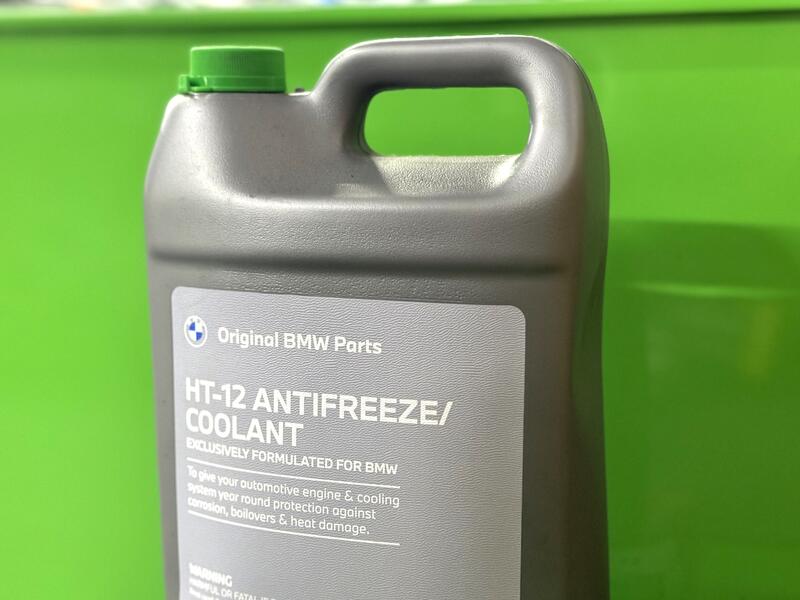
Maintaining the proper levels and quality of various fluids in your European or British vehicle is crucial for ensuring optimal performance and longevity. Here, we detail the key fluids that require regular attention: engine oil, transmission fluid, differential oil, transfer case oil, brake fluid, and engine coolant.
Engine Coolant
-
Importance
Engine coolant allows the components of the cooling system to manage engine temperature and prevent overheating. Its secondary purpose is to prevent corrosion and lubricate the water pump(s). Coolant is also know as “anti-freeze” because it does not freeze when the vehicle is sitting in cold climates like plain water does. A proper mixture of coolant and water transfers heat much better than plain water.
-
Frequency
Change the engine coolant every 30,000 to 50,000 miles or as per the manufacturer’s guidelines.
-
Signs of Issues
Cloudy or discolored coolant in expansion tank, pH test is too acidic or too basic, lack of color at all (plain water).
-
Checks
Regularly check the coolant level at the expansion tank and top up if necessary. If your vehicle has a frequent low coolant warning and low coolant level, there is a leak that should be checked by a shop immediately to prevent damage to the vehicle.
-
Type
There are many different coolant types/colors, especially for European and British vehicles. Never mix coolants.
It is better to top off with distilled water than to use the wrong coolant. To make things more confusing, some coolant types are the same colors but are different formulas.
Engine Oil
-
Importance:
Engine oil lubricates the moving parts of the engine, reducing friction and wear, and helps dissipate heat. Regular oil changes are vital to maintain engine performance and extend its lifespan, especially with more complex and higher performance engines found in European and British vehicles.
-
Frequency:
We recommend changing the engine oil every 6,000 to 10,000 miles, depending on the vehicle and driving conditions. Many new vehicles have service intervals designed to meet certain regulations instead of keeping your engine safe. In general, never exceed 10,000 miles.
-
Signs of Issues
Low oil light on instrument cluster, excess noise from engine, higher engine temperatures.
-
Checks
Regularly check the oil level using the dipstick or vehicle dash info and top up if necessary. Oil usually should not need to be topped off during a normal service interval. Frequent low oil could be an external leak or the engine burning oil due to internal issues.
-
Type
Use high-quality synthetic oil that meets or exceeds the specifications set by the vehicle manufacturer.
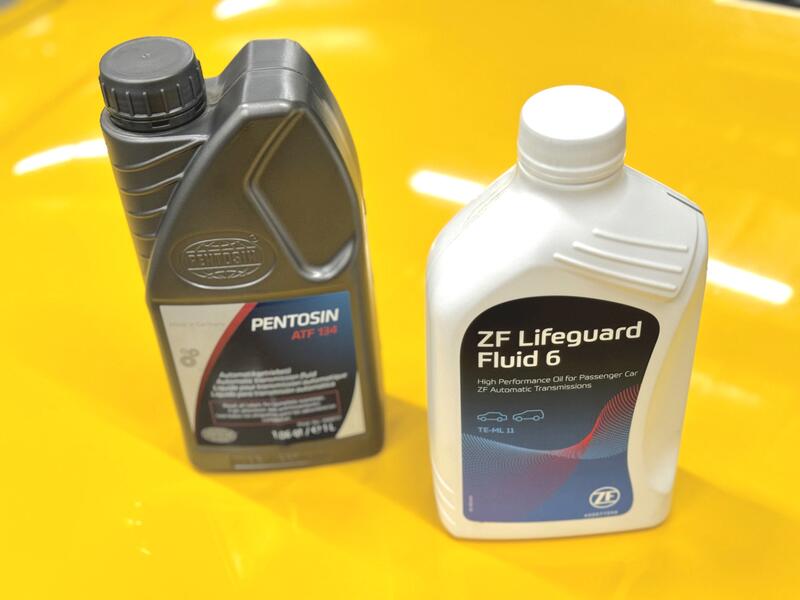
Transmission Fluid
-
Importance
Transmission fluid lubricates the moving parts within the transmission, ensuring smooth gear shifts, proper friction/engagement of the various clutches, and provides cooling.
-
Frequency
Varies based on vehicle and manufacturers. Typically 80,000-150,000 miles.
Some manufacturers specify that it does not require changing. In those cases we recommend every 100k miles. -
Signs of Issues
Look out for delayed or rough shifting or slipping when accellerating (engine RPM is higher than expected).
Shifting issues or slipping can indicate low fluid, clogged filter, degraded fluid, or all of the above. -
Checks
Most older vehicles have a dipstick but the majority of modern European vehicles require checking the level from underneath with the vehicle on a lift.
For dipsticks, the level is typically checked with vehicle at operating temp and running in park. -
Type
Use the specific type of transmission fluid recommended by the vehicle manufacturer. European and British cars use specific fluids with very specific friction modifiers and are not interchangeable or universal. Use of incorrect fluid can permanently damage the transmission.
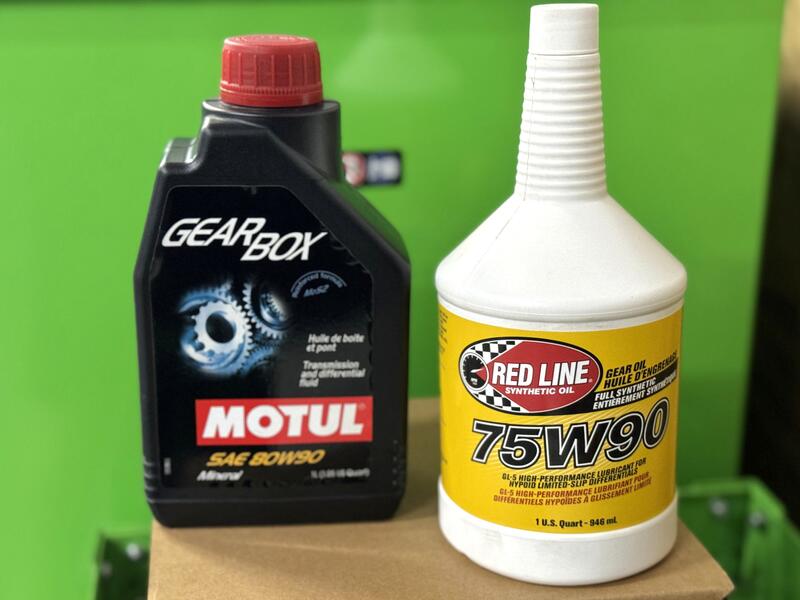
Differential Oil
-
Importance
Lubricates the gears in the differential(s), ensuring smooth operation and reducing wear. Differentials are sealed except for a vent and are simple devices but take all the power from the engine and transmission and transfer it to the wheels so they need fluid changes to ensure long lifespans.
-
Frequency
Change the differential oil every 60,000-80,000 miles or manufacturer recommended interval.
-
Signs of Issues
Regularly check for leaks at the front and/or rear of vehicle and pay attention to a whining noise from front, rear or both.
-
Checks
Checking the level requires tools and lifting the vehicle so it is not something typically done by the vehicle owner.
-
Type
Differential oil is usually much thicker than engine oil or transmission fluid. Some differentials have clutches or electronic/hydraulic locking mechanisms for increased traction and these require specific fluids. Always use a high quality oil no matter what the type to avoid costly rebuilds.
Transfer Case Oil
-
Importance
In vehicles with four-wheel drive or all-wheel drive, the transfer case oil lubricates the gears, bearings, and chains or clutches within the transfer case.
-
Frequency
Change the transfer case oil every 60,000-80,000 miles or manufacturer recommended interval.
-
Signs of Issues
Look out for unusual noises or difficulty in shifting, which may indicate low or contaminated oil.
-
Checks
Checking the level requires tools and lifting the vehicle like the differntials so it is not something typically done by the vehicle owner.
-
Type
Always use the recommended oil type for your vehicle’s transfer case. Some manufacturers use transmission fluid, some use gear oil, some are specific to that particular transfer case.
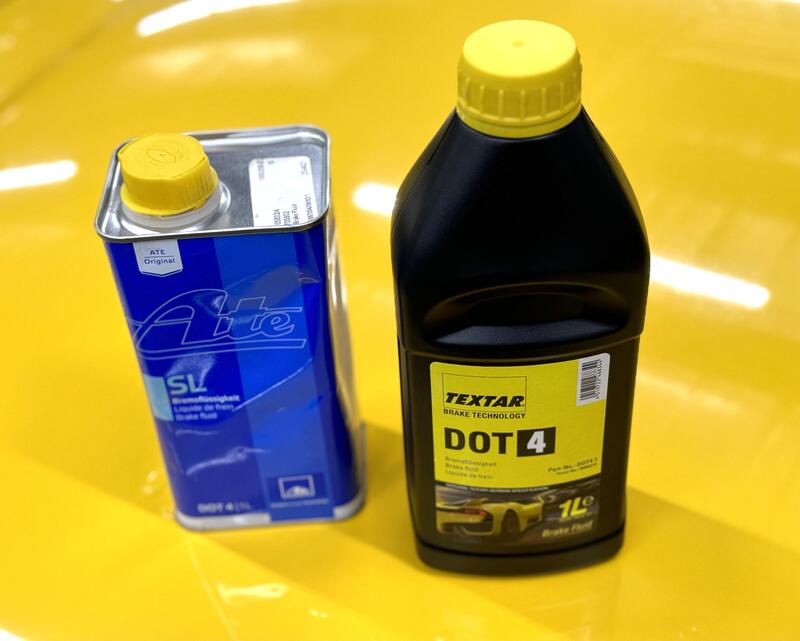
Brake Fluid
-
Importance
Brake fluid is essential for the hydraulic operation of the brake system, allowing for effective braking force.
Brake fluid absorbs water from the environment and must be checked during regular service to ensure the water content is at acceptable levels. -
Frequency
Replace the brake fluid every 2 to 3 years or as specified by the manufacturer.
-
Signs of Issues
Dark or cloudy brake fluid, excess water content, spongy brake pedal, or loss of brake pressure under hard braking can indicate the need for a fluid change.
Brake fluid that is not in good condition can boil under hard or prolonged braking causing complete loss of braking pressure. -
Checks
Level can be checked under the hood. As pads wear, the level will drop slightly. Never fill past the max line.
Checking for water content is done with an electronic tester that is placed in the brake fluid. -
Type
Always use the type recommended by the manufacturer or listed on the reservoir cap. Typically, older vehicles use DOT3 standard and newer vehicles use DOT4. You can put DOT4 in an older system, but should never use DOT 3 in a newer system. We recommend high quality synthetic fluids from ATE or Textar.
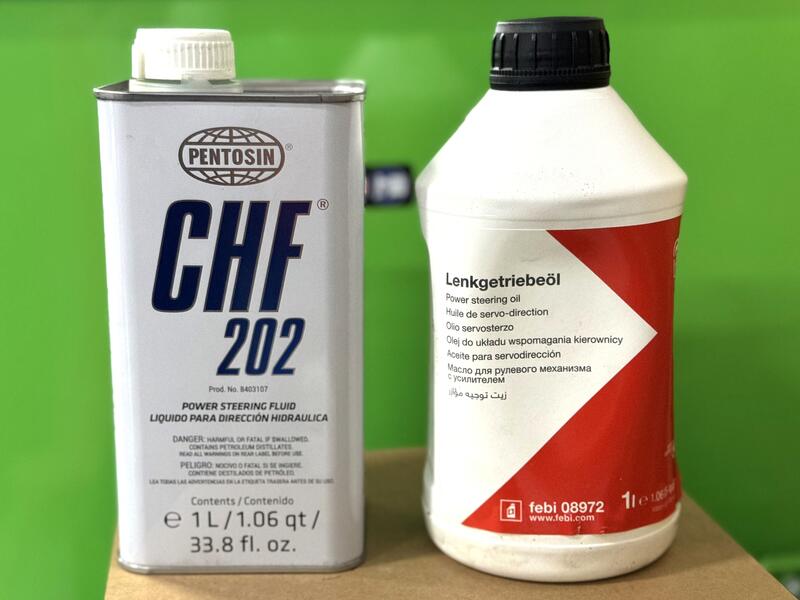
Power Steering Fluid
-
Importance
Power steering fluid allows the power steering pump to pressurize the steering box or rack to assist with turning. It also provides lubrication and cooling for these components.
-
Frequency
Replace the power steering fluid every 50,000 to 75,000 miles, or as recommended by the manufacturer.
-
Signs of Issues
Hard steering, whining noises, or visible leaks can indicate a problem with the power steering fluid.
-
Checks
Check the fluid level when you check your other fluids and top up if necessary. Look for any signs of contamination or foaming. Most vehicles have a small dipstick built on to the cap with a cold and hot level or transparent reservoir with marks on the side.
-
Type
There are several types of fluids used in power steering systems. Some use tranmission fluid, most European and British vehicles use special hydraulic oil. Colors vary from red (transmission fluid) to green or brown. Always use the manufacturer-recommended power steering fluid to ensure proper system function and longevity.
Conclusion
Regular maintenance of these fluids is essential for the health and performance of your European vehicle. Following the manufacturer’s recommendations along without our recommendations and monitoring the condition and levels of these fluids can prevent costly repairs and ensure a smooth and safe driving experience.
Schedule Today
For expert fluid maintenance services for your European or British vehicle, schedule a service with us today to ensure your vehicle’s fluids are maintained properly.
